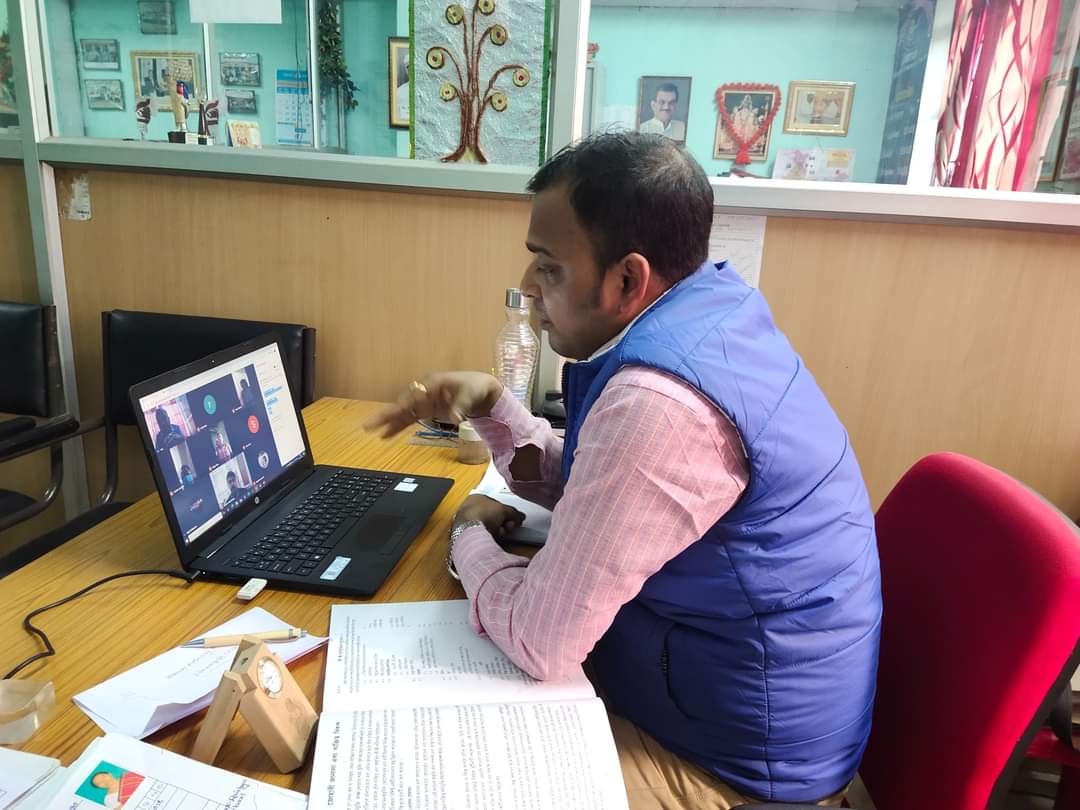Financial Management articles list
Analytical study of foreign direct investment in indian automobile sector
This research paper focused on the role of FDI in Indian automobile sector& dramatic changes in automobile sector after 1991’s open economy policy of Govt. This paper also attempt to splash light on some important aspects such as the journey of Indian Automobile sector from scratch to spectacular progress with combination of foreign technology & Indian talents, growth in direct & indirect employment, economic development of some important aspect in country like GDP as well technology transfer, improvement in R&D through the automobile clusters in country, focusing on potential of Indian automobile sector which is attracting Foreign investment.As well the policy support (Automobile mission plans 2006-16, 2016-2026, NATRiPS, Make in India Mission) by the Central & State Government for establishment of production facilities attracted automakers worldwide. As FDI is key driver not only in terms of inflow of FOREX but changes in the attitude of Government, Customers, &Automakers itself.
A study of foreign direct investment in indian electronics industry
The present study focused on analysing the FDI inflow in Electronics industry form year 2007 to 2018 in country and role of FDI in development of the electronic industry in India. As well identify the current status of Electronics industry in world and the share of India in the same. The present research work also attempted to take overview of various policies introduced by Government of India to promote the FDI in Electronics industry. The FDI inflows statistics reveals that the separate category of Electronics sector is created in year 2007 by DIPP for recording FDI inflow. And sector specific data published in DIPP factsheet revels that this industry has attracted 0.55 % of total cumulative FDI inflow in country till December 2018 which is very negligible share of overall FDI in country. The overview of policies revels that NPE–2012 to New NPE-2018 had attempted to provide multiple incentives for Foreign Investors to establish their electronic manufacturing facilities in country but very negligible response has been seen in response of the same. Further results of study reveals that due to various FTA’s & being signatory of WTO’s ITA-1 in year 1996 leads toward reducing competitiveness of electronic manufacturing in India and country become net importer of approximately 50% of overall domestic need of electronics products.
E-banking and its growth in india – a synoptic view
Now a day’s contribution of Electronic banking towards economic development plays a crucial role in developing countries like India. Banks are no longer restricted to traditional banking rather it is shifted to the virtual banking system. Customers are experiences more feasible in banking operations because of Information technology. The banks are adopting IT-enabled tools and techniques for banking operations which improve in offering quality service to the customers. In traditional banking customers has to visit bank branches to avail banking services. Now with the ATMs, Internet banking, Mobile banking and Information Technology-enabled services are replacing the traditional method of service. In the recent days banks are concentrating on value-based service through E-banking. The present study throws a light on the growth of Electronic banking and its product which are used in the banking sector.
Exploring the big data and cloud computing management in e-government services: a qualitative case study in terengganu public sector
The emergence of big data has caused various challenges to data management lifecycle including storage, processing, sharing, and applications. During the same time frame, the fast development in cloud computing provides increased efficiency in computing support that address these challenges. However, there are issues in big data and cloud computing management which include security concerns, data fragmented, and distrust in using clouds that could become the roadblock to e-government services success. Although ensuring data management has been the responsibility of providers in the public sector, this issue seems to be unavoidable. In such circumstances, initiatives from the public sector agencies are crucial to ensure data is effectively managed. This research in progress aims to investigate how the public sector agencies in Terengganu manage data to improve the e-government performance. The research uses the interpretive research paradigm and adopts the qualitative research methodology using a case study design. A single case of a public sector which utilizes big data and cloud computing within the e-government platform is selected as the case for this research. The findings of this research are expected to be used in developing a framework of big data and cloud computing management which will assist in providing reliable and accurate information to citizens within the e-government environment.
A study on corporate social responsibility – a case study with canara bank.
Creating a strong business and building a better world are not conflicting goals – they are both essential ingredients for long-term success. Canara Bank is one of the leading banks in the banking sector which is serving a lot of customers. The initiatives of the Bank under CSR have been the setting up of Trusts and Institutions which have created an impact in serving the people and society at large.Bank has been engaging employees and motivating them employees for participate in CSR activities. Bank has established a Community Development Section’ under FI Wing whose activities include organizing blood donation camps, health check up camps, career guidance and many more. The objective of this paper is to resolve the activities initiated by Canara Bank and the funds allotted in various areas.
Post-merger profitability of selected banks in india
The present study aims to shed some light on the gains from consolidation exercise in terms of profitability of banks. Through the application of paired t-test, we arrived at the result that the consolidation of banks did improve the profitability of banks in India. The increase in profitability of banks under study is due to an increase in employee turnover and the subsequent reduction in operating expenses. Merger and acquisition programmes in Indian banks cannot be regarded as a false step if the benefits of it accrue to all stakeholders.
A study on work life balance of self employed women entrepreneurs in mangalore city
Increasing presence of women in economic pursuits like entrepreneurship activities is believed to be the result of development policies. This belief ignores the role of socioeconomic factors in the growth and development of women entrepreneurship. Many women entered the world of business and they have become successful entrepreneurs in various business activities. Women entrepreneurs in Dakshina Kannada district have set up business ventures in a range of industries. The study has been conducted to know the extent of problems faced in managing work and life by women entrepreneurs. Majority of the respondents started their business or service to become independent and to meet the financial needs of their family. From the study it has to be found that majority of the women find it difficult to manage their work and family and they are trying to overcome these difficulties by time management and with the help of their family members.
Customer satisfaction towards banking services with reference to corporation bank
The Banking sector influences the economic growth and development of the country both in terms of quality and quantity, there by adopting the various strategies for economic growth. Technological advancements and new initiatives of government have helped banks to provide efficient services to its customers all over the country. The study has been conducted to know the extent of problems faced by the bank customers, and their level of satisfaction towards the banking services provided by the Corporation Bank, Kodialbail Branch, Mangalore. 100 customers of the bank, who are the employees of Besant Institutions, are contacted and data was collected through questionnaire. Study revealed that 66% of respondents have faced problems in operating their bank accounts. 63% of the respondents have availed net banking facilities. Only 18% of the respondents are satisfied and 32% of respondents are neutral about the services of the bank. Some of the respondents provided valuable suggestions to improve the banking services.
A case study on csr initiatives with special reference to hindustan unilever ltd
Corporate Social Responsibility (CSR) is a concept with many definitions and practices. The way it is understood and implemented differs greatly for each company and country. Moreover, CSR is a very broad concept that addresses many and various topics such as human rights, corporate governance, health and safety, environmental effects, working conditions and contribution to economic development. Whatever the definition is, the purpose of CSR is to drive change towards sustainability. Corporate social responsibility (CSR) is now seen as an integral part of corporate strategy. The main purpose of the study is to analyze the corporate social responsibility (CSR) activities carried out by Hindustan Unilever Limited (HUL). An empirical and analytical study was undertaken whereby the corporate official websites of the companies were analyzed. The most preferred CSR activities were observed to be women empowerment, self-employment, health hygiene and environment. The challenge for the companies is to determine a strong and innovative CSR strategy which should deliver high performance in ethical, environmental and social areas and meet all the stakeholders’ objectives.
Environmental social and governance performance in banking sector: a bibliometric study
Financial sector needs special attention pertaining to incorporation of the ESG criteria. Economic and financial issues coupled with climate change would have negative impact on the stability of financial institutions. This research paper attempts to synthesize and summarise scholarly articles published in Scopus database on ESG domain with reference to banking sector using bibliometric analysis. The objective of this review paper is to understand from past literature the trajectory of studies in the domain of ESG. There is a substantial growth in frequency of publication in the year 2022 along with annual growth of around 30 percent during 2015-2023. Bibliometric with MS-Excel, R-Studio and VOS-viewer were used to identify and analyze research trends related to the number of studies, research fields, authors, nations, institutions, and keywords. The important keywords identified in the bibliometric analysis were sustainability, corporate social responsibility, sustainable finance, banks performance.
Environmental social and governance performance in banking sector: a bibliometric study
Financial sector needs special attention pertaining to incorporation of the ESG criteria. Economic and financial issues coupled with climate change would have negative impact on the stability of financial institutions. This research paper attempts to synthesize and summarise scholarly articles published in Scopus database on ESG domain with reference to banking sector using bibliometric analysis. The objective of this review paper is to understand from past literature the trajectory of studies in the domain of ESG. There is a substantial growth in frequency of publication in the year 2022 along with annual growth of around 30 percent during 2015-2023. Bibliometric with MS-Excel, R-Studio and VOS-viewer were used to identify and analyze research trends related to the number of studies, research fields, authors, nations, institutions, and keywords. The important keywords identified in the bibliometric analysis were sustainability, corporate social responsibility, sustainable finance, banks performance.
Entrepreneurial finance through swavalamban scheme and the participation of socially excluded people in tripura
Finance is a key component for entrepreneurial survival , growth and sustainability. Adequacy and consistency in finance is important for healthy entrepreneurial status . The participation of women, SC, ST, OBCs in the financial facilities provided by the govt through Swavalamban Scheme will invite social inclusion in the state .
Roles of stakeholders towards project success: a conceptual study
Stakeholder plays significant roles in project success. They ensure clear communication of project goals, contribute to decision-making, and demonstrate commitment, increasing the likelihood of successful outcomes. They also act as advocates within their organizations, generating buy-in and support. The main purpose of this paper is to identify and discuss the roles of shareholders in a project success. The paper is conceptual in nature and uses a number literatures ranging from 2007 to 2023 from a good number of journals. After scrutinized the literature review, the paper concludes a number of findings. The findings implies that stakeholders in a project is crucial for its success and sustainability. Stakeholders play a significant role in ensuring the performance of the project. Project managers need to acquire stakeholder management skills to address the communication requirements of stakeholders. This is important for the success of the project. The paper recommend that policymakers, practitioners and academia have to ensure the expectations and make a balance among the stakeholders.
Project failure and stakeholders reaction: a conceptual study
Effective project management requires an understanding of how stakeholders are impacted by project failure. It draws attention to the effects on those involve finances, reputations, and emotions, assisting organizations in risk avoidance and fostering stakeholder satisfaction, trust, and long-term success. The purpose of this study is to provide proactive risk management, stakeholder involvement, and project result strategies. In order to compile this study, we have used a number literature reviews ranging from 2004 to 2023. The study's findings show that project failure results in significant financial losses, harms reputation, has legal ramifications, affects employee wellbeing, stifles relationships with stakeholders, stifles innovation, and endangers communities and the environment. By Adopting proactive risk management, strong governance, open communication, employee support, stakeholder involvement, strategic resource allocation, and social and environmental responsibility to reduce these negative effects and achieve sustainable project outcomes. The policymakers, practitioners and academia should focus risk factors those are associated with the project failure and hance manage a good harmony among the stakeholders.
Effects of triple constraints on project success: evidence from bangladesh
Project management plays significant roles to the success of the project. The aim of the study is to review and analyze latest literature on the effects of triple constraints on the project outcome. The study is based on the secondary method whereas literatures are collected form the google scholar ranging from 2010 to 2023. After reviewing the literature, the study concludes a number of findings. The quality of the project is highly depended on the time and budget. However, inadequate management, stakeholders involvement are also play crucial roles towards project success. The study concludes a number policy recommendations.
Transition from industry 4.0 to industry 5.0: opportunities, challenges and technology requirement
Industry 5.0 is still a developing concept, but it is expected to leverage a range of advanced technologies to facilitate human-machine collaboration and enable more customized and sustainable manufacturing.This research paper tried to discuss the opportunities and challenges in the implementation of Industry 5.0. It primarily explored the need to transform from Industry 4.0 to Industry 5.0. The research paper further studied the technologies needed for the implementation on Industry 5.0 and also the principles of Industry 5.0.
The risk perception as a mediator between herding and overconfidence on investment decision by gen z in indonesia
Behavioral finance theory highlights how psychological factors can lead to poor investment decisions, which may threaten investors' trust in the stock market, discourage investments, and hinder economic growth. This study aims to examine how behavioral finance factors, particularly herding bias and overconfidence bias, influence investment decision on the Indonesia Stock Exchange through risk perception. The research was conducted using an online questionnaire distributed to 120 Gen Z stock investors and analyzed using PLS-SEM. The results show that herding and overconfidence biases have a significant positive influence on risk perception. Both herding and overconfidence biases have indirect positive influences on investment decision through risk perception. Although overconfidence bias and risk perception can directly affect investment decision, herding bias fails to do so. These findings highlight the importance of considering an individual's behavioral biases and risk perception, while policymakers should devise strategies to mitigate their impacts; so that investors can benefit from investing, which may eventually lead to the growth of the national economy.
D Sureshkumar
Tamil Nadu Agricultural University
Mohammed Sadeque Sarwari
Mgm University
Erstu Tarko
University Of International Business And Economics
Chungkham Lalit Singh
Dhanamanjuri University
Most Popular Category
- Pharmacy (256)
- Education and social science (213)
- Pharmacology (208)
- Pharmacognosy (172)
- Business management (141)
- Pharmacology and toxicology (129)
- Pharmaceutical sciences (125)
- Education and training (123)
- Research (121)
- Medicine (111)
- Management (98)
- Health Science (96)
- Computer Science (83)
- Human resource management (83)
- Biological Sciences (82)
- Computer Science Applications (77)
- Engineering (69)
- Accounting and finance (67)
- Information technology (61)
- Public health (58)
 ANSHUMAN VIJAY MAGAR
ANSHUMAN VIJAY MAGAR  Kamal Singh
Kamal Singh  Vidya Bhat
Vidya Bhat  Akhil Antony
Akhil Antony  Md. Abdur Rahman Choudhury
Md. Abdur Rahman Choudhury  Lila Maria Kaban
Lila Maria Kaban